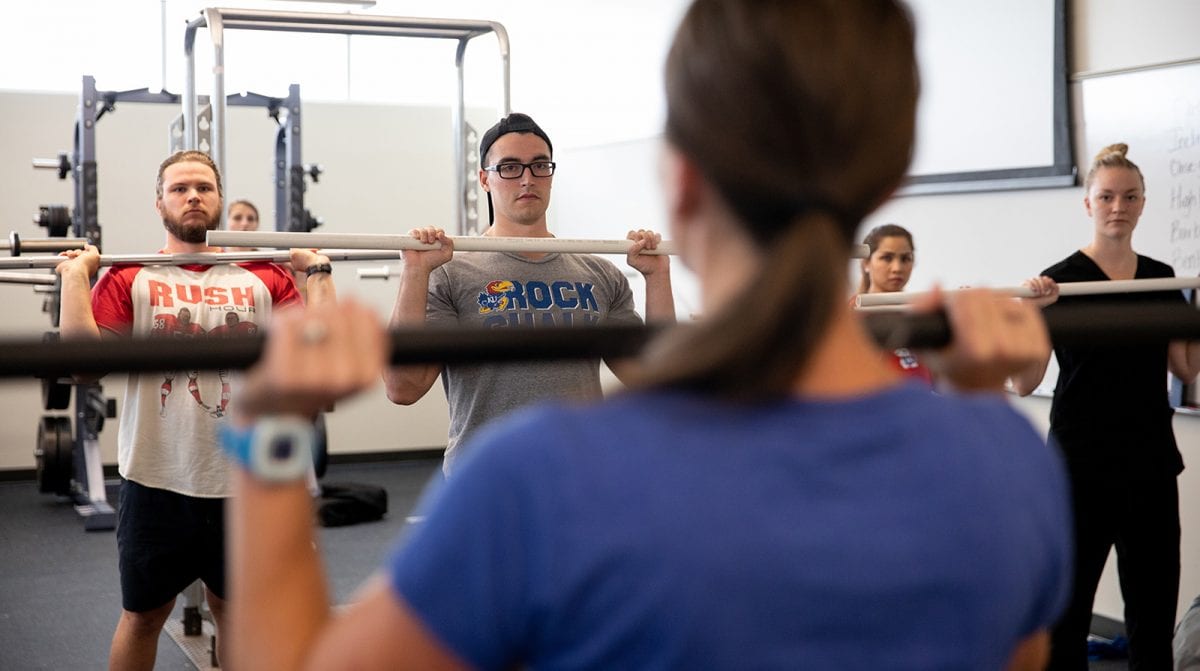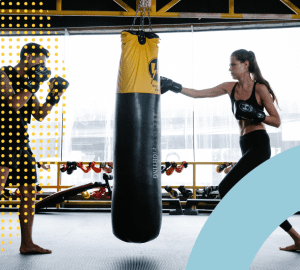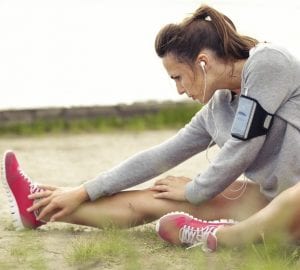The health and fitness industry has become known for being a fast and continually growing sector, with more and more individuals turning to professionals, whether it be a private coach or a group class instructor, for guidance. The COVID-19 pandemic, if anything, has only elevated demand in the industry, bringing a huge shift to at-home gyms and online classes guided by qualified exercise science professionals. In a world that all too often values health and fitness exclusively for their aesthetic benefits, it’s important to remember that there is much more to being in shape than having six-pack abs (though, that may not be a bad place to start). For those who are seeking to break into the booming health, wellness or fitness industries, that “importance” becomes integral for application and reputability within the field.
The best way to authentically guide another person towards their health, wellness or fitness goals is to have an understanding of the biomechanics at work behind the exercises. That’s right, it’s not all “picking things up and putting them down,” there are multiple sciences to consider with the art and practice of exercise. For those who want to learn more about those sciences, there is a way: an Exercise Science Degree. Here’s everything you need to know about pursuing this degree.
A Bachelor of Science in Exercise Science includes coursework in the following core areas of study: anatomy, kinesiology, physiology and nutrition. Needless to say, it isn’t a walk in the park, or a mere party at the gym where students compare techniques and compliment form. This truly is a science degree with lab requirements and everything. Let’s break down the core curriculum a bit further:
- Anatomy: students will study the human bodily structure. Basically, learn about where all the bones, muscles and organs are and how they relate to each other.
- Physiology: students will understand the functions of organisms, organ systems, individual organs, cells, and biomolecules. Ultimately learning their chemical and physical processes.
- Kinesiology: students will study bodily movement. So, a step beyond where everything is and what everything does, and getting into the mechanics of motion and the effects it has on overall bodily wellness.
- Nutrition: students will study of the nutrients in food, how the body uses them, and the relationship between diet, health, and disease.
All of this curriculum is included to truly grasp the biological benefits of exercise, and therefore garner the capability to optimize it. In addition to these core sciences, a student pursuing an exercise science degree can expect the ability to customize their studies, often tailoring them to fit a particular concentration. Common concentrations within an BS in Exercise Science include:
- Wellness Management
- Strength & Conditioning
- Pre-Physical Therapy
- Pre-Health Profession
- Sports Sciences
These concentrations allow a student to set themselves up on a clear path to apply their scientific studies to real world career opportunities. Whether a student is in it for the long haul, with the intent to pursue a career in the medical field, or they have their eyes on a slightly shorter horizon with ambitions to become a health coach, the BS in Exercise Science will be an important step along the way. Some career paths oft sought after with this degree are:
- Personal Trainer/Fitness Instructor
- Health Educator
- Sports Coach/Scout
- Physical Therapist
- Nutritionist
- Wellness Center Manager
Colleges and universities across the country are savvy to the fact that careers in the health and fitness industry are in high demand. After all, the U.S. Bureau of Labor Statistics (BLS) has predicted that the number of athletic trainer jobs will increase by 15% between 2018 and 2028, which is significantly more than the 5.3% average growth for all occupations. This might be why it won’t be hard for a prospective student to find a school that suits their needs and desires when it comes to studying Exercise Science at any level. Whether a student is looking to pursue a Master’s degree in Applied Exercise Science at their local university, or a Bachelor’s in Exercise Science program online, from the comfort of their own home, there is something for everyone. Nowadays particularly, as fitness classes are moving to the virtual sector, online colleges are not to be overlooked or underestimated.
For people who are passionate about the health and wellbeing of not only themselves, but of the people around them and humanity as a whole, or for those who are simply fascinated by the way our complex and incredible bodies work, a degree in Exercise Science could be the best place to start building a thriving career. Or maybe just to get those six-pack abs. Either way, go for it! Knowledge is power.








